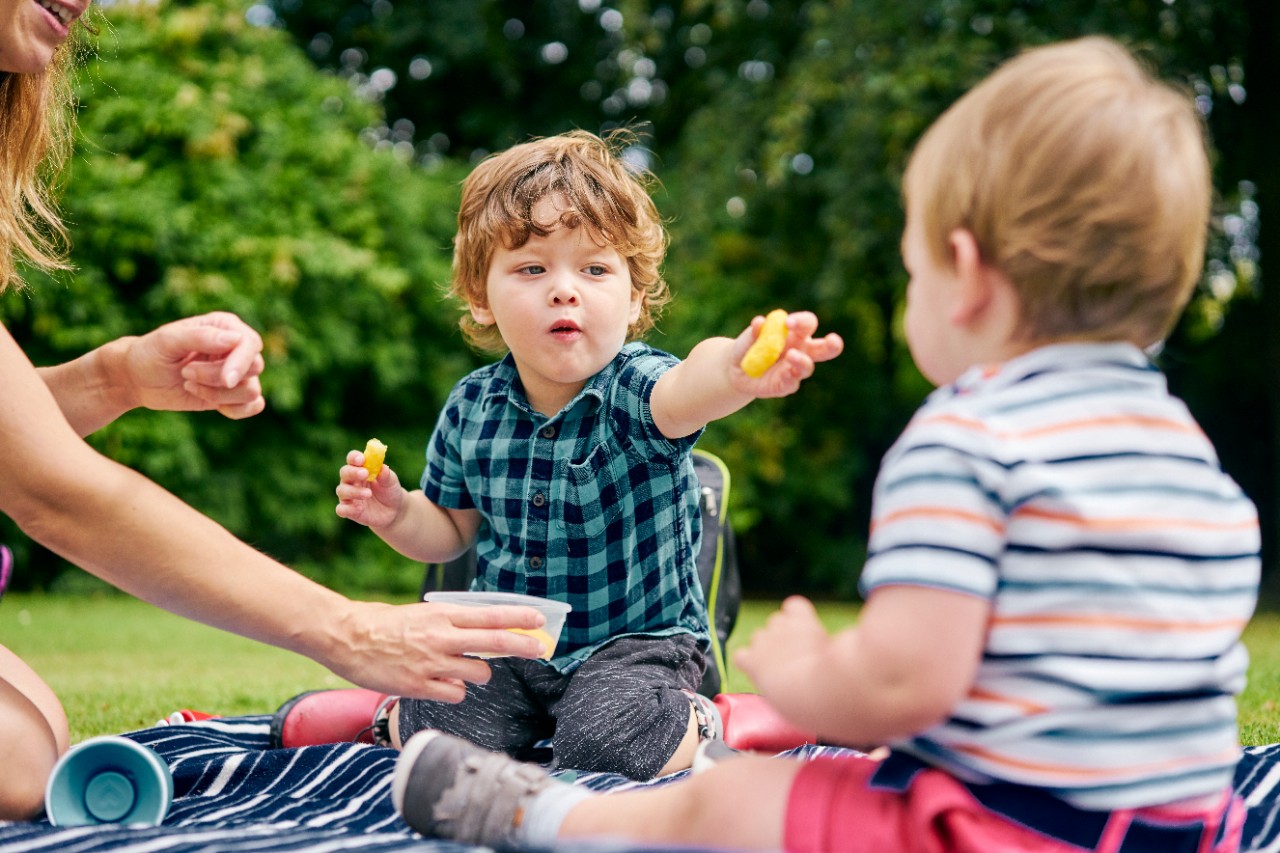What Challenges Await in Raising Twins and a Toddler?
Raising twins and a toddler means juggling multiple schedules, managing sleep deprivation, and balancing individual needs. You’ll face the challenge of handling double the feeding, mealtimes, and meltdowns, all while fostering sibling bonds and organizing a chaotic household. Prioritize mental well-being, communicate effectively, and establish self-care routines to navigate these hurdles with grace. Remember, understanding triggers, setting boundaries, and staying patient are key. The complexities of sibling dynamics and household organization may seem intimidating, but with practical strategies and support, you can conquer these challenges one step at a time.
Key Takeaways
- Juggling multiple schedules for three children requires careful planning and flexibility.
- Sleep deprivation management is crucial for well-being and establishing healthy sleep habits.
- Balancing individual needs among twins and a toddler demands thoughtful planning.
- Double the feeding and mealtimes require meal planning and synchronization of schedules.
- Managing tantrums and meltdowns with patience, empathy, and behavior management techniques is essential.
Juggling Multiple Schedules

Balancing the daily routines of twins and a toddler can be a complex juggling act, requiring careful planning and flexibility. Time management becomes essential when coordinating activities for three young children who each have their own needs and schedules. Scheduling conflicts are bound to arise, making it vital to find a delicate balance between the demands of all three little ones.
To navigate through this intricate web of schedules, prioritize tasks based on urgency and importance. Balancing priorities is pivotal to make sure that each child receives the attention and care they require. Establishing a daily routine can provide structure and stability, helping you manage your time effectively.
When conflicts arise, don’t hesitate to adjust schedules or activities as needed. Flexibility is your greatest ally in this balancing act.
Remember to communicate openly with your partner or other caregivers to share responsibilities and support each other in managing the demanding schedules of twins and a toddler.
Sleep Deprivation and Exhaustion
Dealing with sleep deprivation and exhaustion while caring for twins and a toddler can be an overwhelming challenge that requires careful attention and self-care. Sleep training plays an important role in establishing healthy sleep habits for your little ones. Consistency is essential when managing naptime struggles and bedtime battles. Setting up a bedtime routine can help signal to your children that it’s time to wind down and prepare for sleep.
When exhaustion sets in, it’s important to prioritize rest whenever possible. Take advantage of any opportunity to nap or relax while the children are asleep. Remember, it’s okay to ask for help from your partner, family, or friends to get some much-needed rest.
Additionally, maintaining a balanced diet and staying hydrated can contribute to your overall well-being and energy levels.
Managing nighttime routines and ensuring everyone gets enough sleep can be challenging, but with patience, perseverance, and a bit of self-care, you can overcome the hurdles of sleep deprivation and exhaustion that come with raising twins and a toddler.
Balancing Individual Needs
Balancing individual needs among your twins and toddler can be a complex task. Each child has unique requirements that demand your attention and time.
Juggling these priorities while ensuring each child feels seen and heard can be challenging but achievable with thoughtful planning.

Meeting Unique Needs
Balancing the unique needs of each twin and your toddler can be a delicate juggling act, requiring attention to individual preferences and developmental stages. Understanding the twin dynamics alongside the toddler dynamics is essential in catering to their distinct requirements.
Twins may have their own language, routines, or ways of comforting each other, while the toddler might be exploring independence or going through potty training. These unique challenges can create situations where one child needs more attention or has different emotional needs than the others.
Observing each child’s individual needs and responding accordingly will help foster a sense of security and understanding within the family unit.
To navigate these dynamics successfully, take note of each child’s preferences, temperament, and milestones. Encouraging individuality while also promoting unity within the sibling group can aid in meeting their unique needs.
Being attuned to their signals and providing personalized support will help in establishing a harmonious environment where each child feels seen, heard, and valued.
Time and Attention
Managing the needs of your twins and toddler when it comes to time and attention requires a thoughtful and individualized approach to guarantee each child feels supported and valued. Quality time is essential for fostering strong relationships with each child. While it may seem challenging to find time for one-on-one interactions with each child, small moments of individual attention can make a significant difference.
Setting aside dedicated time for each child, even if it’s just a few minutes a day, can help them feel seen and valued. This could include reading a book together, having a special bedtime routine, or playing a favorite game.
Additionally, involving your toddler in caring for the twins can provide them with a sense of importance and individual attention.
Juggling Priorities
To meet the unique needs of each child, it’s essential to prioritize effectively and adjust your daily routines accordingly. Time management becomes critical when juggling the demands of twins and a toddler.
Start by establishing a daily schedule that allows you to dedicate quality one-on-one time to each child. This may involve syncing nap times, meal times, and play times to make sure that everyone receives the attention they need.
Communication is key in setting boundaries and managing expectations. Clearly communicate with your partner, family members, or any caregivers about the individual needs of each child. By discussing and aligning on priorities, you can make certain that everyone is on the same page when it comes to meeting the needs of your twins and toddler.
Remember to be flexible and open to adjustments as your children grow and their needs evolve. By staying organized and communicating effectively, you can navigate the challenges of balancing individual needs and create a harmonious environment for your growing family.
Double the Feeding and Mealtimes

Managing through the day with twins and a toddler means you’ll be juggling double the feeding and mealtimes. Meal planning becomes essential in ensuring that everyone’s dietary needs are met efficiently.
With twins, it’s beneficial to synchronize their feeding schedules as much as possible to avoid constant meal preparations. Consider preparing larger batches of meals that can be easily reheated to save time and energy.
When it comes to accommodating different dietary needs, flexibility is key. If one of your twins has specific dietary requirements, try to incorporate meals that can be adapted to suit everyone. This approach can simplify the mealtime process and reduce stress.
Additionally, involving your toddler in meal prep can be a fun way to keep them engaged while also easing your workload.
Managing Tantrums and Meltdowns
When faced with tantrums and meltdowns while raising twins and a toddler, understanding the root causes can help you navigate these challenging moments with patience and empathy. Behavior management is key in handling these situations effectively. One strategy is to identify triggers that lead to tantrums, such as hunger, fatigue, or overstimulation, and try to address them proactively.
Emotional regulation plays a vital role in managing tantrums. Teaching your children simple techniques like taking deep breaths or counting to ten can help them calm down when they feel overwhelmed. Additionally, establishing consistent discipline techniques is important. Setting clear boundaries and following through with appropriate consequences can help your children understand expectations and learn to regulate their emotions.
Coping strategies are essential for both you and your children during these moments. Remember to stay calm and model positive behavior, even when faced with challenging situations. Taking breaks when needed and seeking support from family or friends can also help you manage stress and respond to tantrums more effectively.
Finding Time for Self-Care

Hey there, juggling the demands of twins and a toddler can be essential, leaving little time for yourself.
It’s important to prioritize your mental well-being amidst the chaos. Finding small moments for self-care can make a world of difference.
Balancing everyone’s needs effectively, including your own, is key to maintaining a healthy and sustainable routine.
Prioritizing Mental Well-Being
To maintain your mental well-being while juggling the demands of raising twins and a toddler, it’s essential to carve out dedicated time for self-care. Self-care isn’t a necessity but a requirement for your overall health. Stress management plays an important role in ensuring you can be present and attentive to your children.
Mental health and well-being tips include finding small moments throughout the day for mindfulness exercises, deep breathing, or a quick walk to recharge.
It’s important to prioritize self-care activities that rejuvenate you, whether it’s reading a book, taking a warm bath, or enjoying a hobby. Don’t underestimate the power of asking for help from a partner, family member, or friend to give yourself a moment of respite.
Balancing Needs Effectively
Finding time for self-care while balancing the needs of your twins and toddler requires intentional planning and prioritization of your well-being. Effective communication and time management are vital in ensuring you carve out moments for yourself amidst the demands of caring for young children.
It’s important to openly discuss with your partner or support system about the importance of self-care and how they can assist in allowing you some time for yourself. Clearly communicate your needs and establish a schedule that works for everyone involved.
When it comes to time management, consider creating a daily routine that includes designated periods for self-care activities, such as exercise, reading, or simply unwinding. Utilize nap times or ask for help from a family member or friend to watch the children for a bit.
Remember that taking care of yourself isn’t selfish but essential for your overall well-being and ability to care for your little ones effectively. By prioritizing self-care and implementing effective communication strategies and time management techniques, you can find the balance you need to navigate the challenges of raising twins and a toddler.
Self-Care Routines Importance
Balancing the needs of your twins and toddler can be demanding, but it’s vital to prioritize your self-care routines to maintain your well-being and effectively care for your children.
Finding time for self-care is pivotal in managing the challenges that come with parenting multiple young children. Incorporating daily meditation into your routine can help you center yourself, reduce stress, and cultivate a sense of calm amidst the chaos. Even if it’s just for a few minutes each day, this practice can make a significant difference in your mental and emotional well-being.
In addition to daily meditation, establishing an exercise routine can have a positive impact on your physical health and overall mood. Whether it’s a quick workout at home while the kids nap or a brisk walk with the stroller, prioritizing physical activity can boost your energy levels and help you feel more resilient in facing the demands of caring for your little ones.
Dealing With Sibling Rivalry

Addressing sibling rivalry between twins and a toddler requires patience, understanding, and essential strategies to foster positive relationships among all your children. Sibling bonding is vital in fostering a strong connection between your twins and toddler.
Encourage shared activities and moments that promote cooperation and bonding, such as reading together or engaging in group play.
Conflict resolution is key when managing disagreements. Teach your children healthy ways to express their feelings and resolve conflicts peacefully. Encourage them to communicate openly, listen to each other, and find compromises that satisfy everyone involved.
Model positive conflict resolution techniques in your own interactions to provide a good example for your children to follow.
Remember that each child has their unique needs and personalities. Spend quality one-on-one time with each child to strengthen your individual relationships.
Organizing a Chaotic Household
To manage a chaotic household with twins and a toddler, efficient organization is key to maintaining a sense of structure and harmony in your daily routines. Household organization and time management are vital aspects that can help you navigate through the whirlwind of caring for multiple young children.
Simplifying routines can make a significant difference in streamlining your days. Consider creating a daily schedule that includes designated time slots for meals, naps, playtime, and activities to guarantee a sense of predictability for both you and your children.
Decluttering spaces can also contribute to a more organized environment. Having designated storage areas for toys, clothes, and other essentials can help reduce clutter and make it easier to find what you need when you need it. Consider involving your twins and toddler in the organization process, teaching them the importance of tidying up after themselves.
Handling the Logistics of Outings

Planning outings with twins and a toddler can be a logistical puzzle. Balancing different needs and ensuring everyone stays safe can feel overwhelming.
Let’s explore some tips to streamline your outing planning, manage varying needs, and prioritize safety considerations.
Outing Planning Tips
When preparing for outings with twins and a toddler, consider creating a detailed checklist to make sure you have all essentials packed and ready to go. Having twins and a toddler can make outings more complex, so being organized is key. Make sure to pack enough diapers, wipes, snacks, bottles, and extra clothes for all three children. It’s also helpful to carry a small first aid kit in case of any emergencies.
When choosing activities for your outing, consider options that cater to the different ages and interests of your children. Look for places that have a mix of indoor and outdoor activities so that everyone can have fun. Parks, indoor play areas, or even a visit to a child-friendly museum can be great choices.
Remember to plan for breaks and snacks to keep everyone happy and energized. Having a well-thought-out plan can help make outings with twins and a toddler more manageable and enjoyable for the whole family.
Managing Different Needs
Managing the logistics of outings with twins and a toddler can present unique challenges due to their varying needs and interests. Balancing acts become essential when considering individual attention and sibling dynamics. To navigate this, personalized care is key.
When planning outings, try to incorporate activities that cater to each child’s preferences. This could mean alternating between playground visits for your toddler and museum trips for your twins, allowing each child to engage in activities they enjoy. Understanding and acknowledging their individual needs can help reduce conflicts and tantrums during outings.
Sibling dynamics can also play a significant role in how smoothly an outing goes. Encourage teamwork and cooperation among the siblings by involving them in decision-making processes. Assigning roles, such as the ‘helper’ or ‘leader’ for the day, can foster a sense of responsibility and unity among the children.
Safety Considerations
To guarantee the safety of your twins and toddler during outings, it’s important to take into account logistical factors and plan ahead accordingly. Childproofing your home is a key step in ensuring a safe environment for your little ones.
When heading out, make sure to pack essentials such as snacks, water, and any necessary medications. Supervising playtime is essential, especially in public places where your children might wander off.
Car seat safety is non-negotiable. Ensure that each child is correctly secured in their car seat before driving anywhere. Baby gates are another important tool to prevent accidents at home. Installing gates at the top and bottom of stairs can help keep your children safe.
Remember to always have a first aid kit handy for minor emergencies. Planning your outings around nap times and meal times can help reduce meltdowns and keep everyone content.
Ensuring Each Child Feels Loved

Managing the complex sibling dynamics while guaranteeing that each child feels loved is essential in fostering a strong bond and sense of security within your family dynamic. With twins and a toddler, the challenge lies in striking a balance in providing individual attention to address their unique needs.
To guarantee that each child feels loved, consider implementing specific parenting strategies. Allocate one-on-one time with each child to cultivate emotional bonding and strengthen your relationship with them. This personalized attention helps them feel valued and secure in your love.
Sibling dynamics can sometimes lead to feelings of jealousy or competition for attention. Promote positive interactions between siblings by creating a supportive and loving environment. Teach them the importance of empathy, sharing, and cooperation to build a strong sibling bond.
Frequently Asked Questions
How Can I Prevent Jealousy Between My Twins and Toddler?
To prevent jealousy between your twins and toddler, focus on sibling rivalry by encouraging open communication. Manage expectations by acknowledging each child’s individual needs and spend quality time with each child separately to foster strong bonds.
Is It Possible to Maintain a Consistent Bedtime Routine?
Maintaining a consistent bedtime routine with siblings can be challenging. To navigate sibling dynamics and bedtime struggles successfully, prioritize consistency. Communicate openly with your partner to make sure both parents are on the same page.
What Strategies Can I Use to Keep the House Tidy?
To keep the house tidy with twins and a toddler, create a cleaning schedule that fits your routine. Use organization tips like labeled bins for toys. Declutter regularly to maintain order. Manage time efficiently by tackling small tasks daily.
How Do I Handle Conflicting Nap Schedules?
When handling conflicting nap schedules, coordinate nap times by communicating with your twins and toddler. Balance their needs with flexibility, aiming for overlaps when possible. Utilize quiet activities for the awake child during nap times to ease the change.
Are There Tips for Fostering Individuality in Each Child?
To foster individuality in each child, focus on encouraging independence. Allow them to explore different interests and make choices. Praise their unique strengths to build self-esteem. Celebrate their differences and support their growth as individuals.
Conclusion
To sum up, raising twins and a toddler can be a challenging and overwhelming experience, but with patience, organization, and lots of love, you can navigate through the chaos and create a harmonious household.
Remember to take care of yourself and seek support when needed.
Every day may bring new challenges, but also new joys and precious moments with your little ones.
You’ve got this!

Hey there! 👋 I’m a proud mom and passionate writer, sharing my parenting journey. 📝 Join me as I navigate the ups and downs of motherhood, offering tips, advice, and a sprinkle of humor along the way. 🌟







